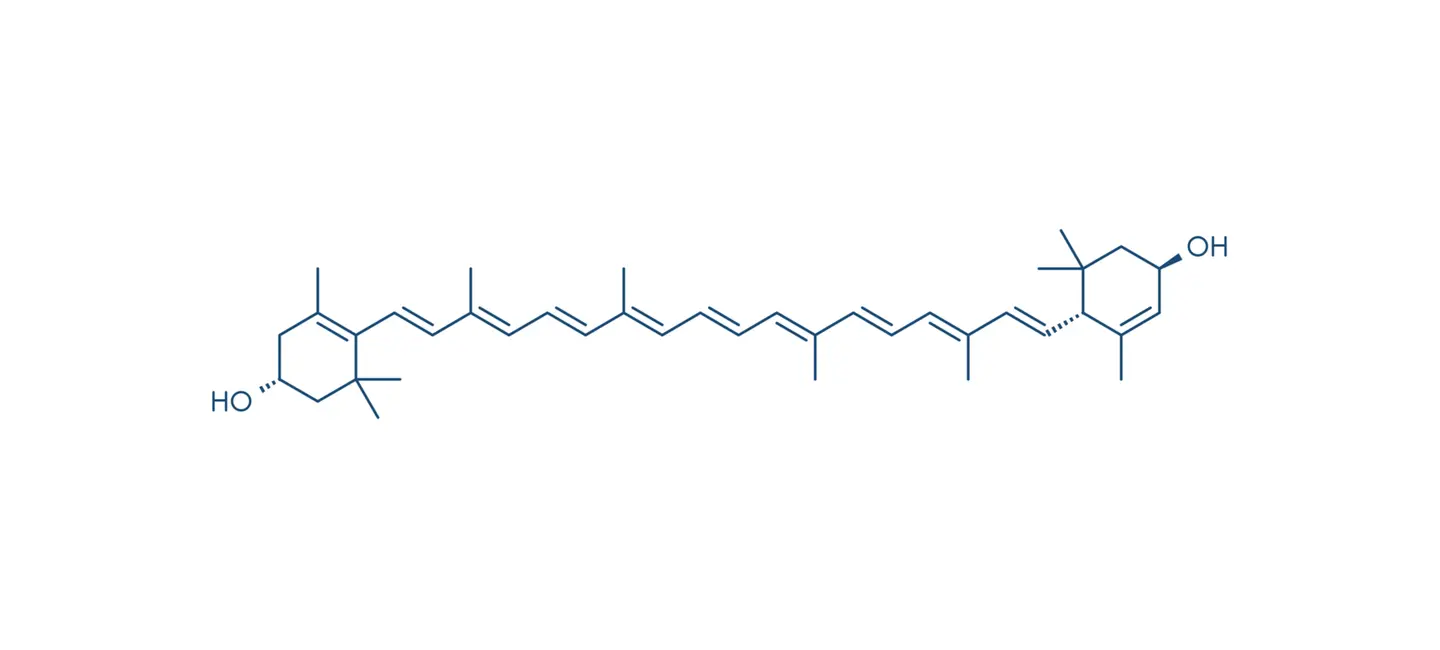
Lutein is a type of organic pigment called a carotenoid. It is related to beta-carotene and vitamin A. Many people think of lutein as "the eye vitamin."
Lutein is one of two major carotenoids found in the human eye (macula and retina). It is thought to function as a light filter, protecting the eye tissues from sunlight damage. Foods rich in lutein include egg yolks, spinach, kale, corn, orange pepper, kiwi fruit, grapes, zucchini, and squash.
Lutein is commonly taken by mouth to prevent eye diseases, including cataracts and a disease that leads to vision loss in older adults (age-related macular degeneration or AMD). Lutein is used for many other conditions, but there is no good scientific evidence to support these other uses.
Is It Effective?
NatMed Pro rates effectiveness based on scientific evidence according to the following scale: Effective, Likely Effective, Possibly Effective, Possibly Ineffective, Likely Ineffective, Ineffective, and Insufficient Evidence to Rate.
- An eye disease that leads to vision loss in older adults (age-related macular degeneration or AMD). Taking lutein supplements by mouth for up to 36 months can improve some symptoms of AMD. More benefits might be seen when it's taken for at least 3 months at doses above 5 mg, and when it's combined with other carotenoid vitamins. But lutein doesn't seem to keep AMD from becoming worse over time.
- Cataracts. Eating higher amounts of lutein in the diet is linked with a lower risk of developing cataracts. But it's not clear if taking lutein supplements by mouth helps people who already have cataracts.
- A lung disease that affects newborns (bronchopulmonary dysplasia). Giving preterm infants lutein and zeaxanthin by mouth doesn't reduce the chance of developing bronchopulmonary dysplasia.
- A serious intestinal disease in premature infants (necrotizing enterocolitis or NEC). Giving preterm infants lutein and zeaxanthin by mouth doesn't prevent NEC.
- An inherited eye condition that causes poor night vision and loss of side vision (retinitis pigmentosa). Taking lutein by mouth doesn't improve vision or other symptoms in people with retinitis pigmentosa.
- An eye disorder in premature infants that can lead to blindness (retinopathy of prematurity). Giving preterm infants lutein and zeaxanthin by mouth doesn't prevent retinopathy of prematurity.
There is interest in using lutein for a number of other purposes, but there isn't enough reliable information to say whether it might be helpful.
Is it Safe?
When taken by mouth: Lutein is likely safe when taken by mouth. Consuming up to 20 mg of lutein daily as part of the diet or as a supplement appears to be safe.
Special Precautions & Warnings:
Pregnancy and breast-feeding: Lutein is likely safe when used in the amounts found in food.
Children: Lutein is likely safe when taken by mouth in appropriate amounts. A specific product (LUTEINofta, SOOFT Italia SpA) containing lutein 0.14 mg daily has been safely used in infants for 36 weeks.
It is not known if Lutein interacts with any medicines. Before taking Lutein, talk with your healthcare professional if you take any medications.
Beta-carotene: Using beta-carotene along with lutein may reduce the amount of lutein or beta-carotene that the body can absorb.
Vitamin E: Taking lutein supplements might decrease how much vitamin E the body absorbs. Taking lutein and vitamin E together might decrease the effects of vitamin E.
Lutein is better absorbed by the body when it is taken with a high-fat meal.
Lutein is found in many foods, including egg yolks, spinach, kale, corn, orange pepper, kiwi fruit, grapes, zucchini, and squash. There's 44 mg of lutein in one cup of cooked kale, 26 mg per cup of cooked spinach, and 3 mg per cup of broccoli.
Lutein is also taken in supplements. It's most often been used by adults in doses of 10-20 mg by mouth daily, for up to 3 years. Many multivitamins contain lutein. They usually provide a relatively small amount, such as 0.25 mg per tablet. Lutein is absorbed best when it's taken with a high-fat meal. Speak with a healthcare provider to find out what type of product or dose might be best for a specific condition.
All-E-Lutein, Beta,epsilon-carotene-3,3'-diol, E-Lutein, Luteina, Lutéine, Lutéine Synthétique, Synthetic Lutein.
Information on this website is for informational use only and is not intended to replace professional medical advice, diagnosis, or treatment. While evidence-based, it is not guaranteed to be error-free and is not intended to meet any particular user’s needs or requirements or to cover all possible uses, safety concerns, interactions, outcomes, or adverse effects. Always check with your doctor or other medical professional before making healthcare decisions (including taking any medication) and do not delay or disregard seeking medical advice or treatment based on any information displayed on this website.
© TRC Healthcare 2024. All rights reserved. Use and/or distribution is permitted only pursuant to a valid license or other permission from TRC Healthcare.
